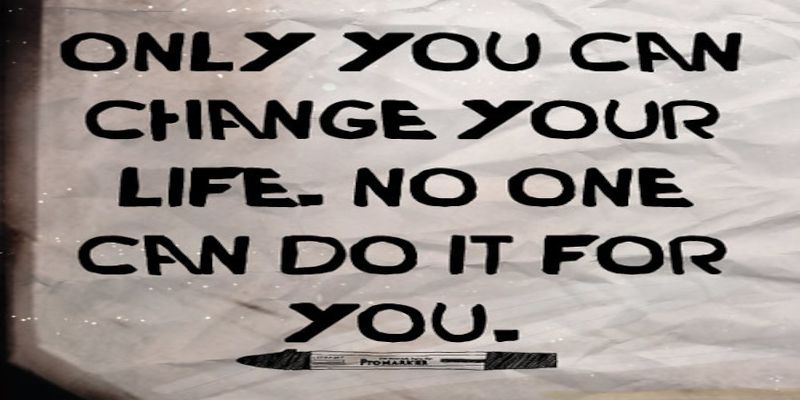Table of Contents
ToggleA continuous improvement mindset can be applied to everything in life.
No matter if you are currently experiencing positive or negative events in your life, a growth attitude can allow you to learn from both the good and the bad. Especially, failures are particularly good to improve on weaknesses.
So now the question becomes, “How can I improve my attitude?” Well, the first step towards improving as a person is believing in the power that you can improve.
Defining the continuous improvement mindset

The continuous improvement mindset can be defined as a personal, ceaseless growth mindset that is ruthlessly applied to everything.
As indicated, it is a continuously ongoing process that’s never finished. It can be applied to literally anything in life and operates on the belief that everything in your life can be improved. Be it situation, socially, or career-wise.
This personal growth mindset can be applied to both positive and negative events since there’s a lesson to be learned from both the good and bad things happening in life.
Why is the continuous improvement mindset rare?

Not open to change
A requirement to improve is that we must be open to change. It’s much easier on our ego and psyche to garner attention by applying a victim mindset, even though it’s extremely harmful in the long run.
We must admit to ourselves that things could be better if we properly applied ourselves.
Sometimes, our egos can get in the way and won’t allow us to change, since we are stuck in a fixed mentality that “We already know everything there is to know.” Not only is that an arrogant claim, but it’s wrong as well.
Life is so complex that it’s impossible to learn everything there is to learn during one lifetime. Even when keeping an open mind.
Afraid of change

Some people see change as negative and scary.
The unknown can certainly be scary, and a lot of people operate under the motto “Better the devil I know, than the devil I don’t know.”
Yet, it is often in the unknown where most growth and improvement happens. The very thing you’re afraid of might end up being the best thing that ever happened to you.
It’s confronting
It can be incredibly confronting, being faced with your weaknesses and inadequacies.
Since it’s in our nature to protect our ego that we frequently portray to be better than it is in reality, it takes real courage and perseverance to actively search and chase after one’s inadequacies to fix them.
It requires a lot of mental effort to improve

For continuous self-growth to occur, we must figure out what our weaknesses are to figure out what went right and wrong, and thus, what we can do to improve.
This requires a lot of mental fortitude and energy to do so. This means that improving expands a ton of energy.
It is hard
It can be hard and challenging to constantly be thinking about what to improve on since thinking is a mentally draining activity, not to mention, time-consuming.
We people often try to take the easy way if possible, and for good reason. Why make it hard on yourself when the same can be accomplished way easier while simultaneously expending less energy?
However, in some cases like this one for example, it’s still beneficial to take the hard road since the ‘harder’ way will lead to improvement in the long run.
How to create a continuous improvement mindset?

Celebrate and learn from failures
Learning from our mistakes and failures is arguably the most important aspect of creating a continuous improvement mindset.
Instead of negatively attributing failures, failure should be celebrated and considered a good thing.
Failure exposes weak spots in our lives that we should improve on to ultimately change our lives for the better.
As said before, improving your growth mindset can be done and applied to both positive and negative events.
And while people rarely enjoy failure, we often learn way more from failing than we do from succeeding immediately. The reason is that negative emotions like fear and anxiety are more powerful motivators than positive emotions.
Failure can even be considered a success in disguise.
Stay curious

Curiosity entices us to learn. Improving your growth attitude is exactly that, learning new things.
Curiosity can be seen as the precursor to becoming good at anything in life. In this regard, it is no different.
One needs to be curious to continue learning about how to improve one’s mentality. We need that curiosity to ask the challenging questions necessary to understand what went right and wrong.
Dare to think big
Since continuous improvement can be applied to literally anything, one must dare to think big to get the most out of this attitude.
For example, you can improve at your job, socially, and at your hobbies. But you can also use it to achieve personal success, and fulfillment in life and to help other people and society as a whole.
Dare to think bigger than just ‘you’ on an individual level, and try expanding to ‘we’ on a collective level if possible.
Have patience

Good things rarely come easy. Furthermore, people in modern society are obsessed with immediate short-term rewards rather than delaying gratification to have more satisfying long-term gratification.
A continuous growth mindset is exactly that. Continuous. This means that our work is never finished. You can continue to strive for perfection, but this will require patience in the process. Also take note that perfection is impossible to achieve, but not necessarily a bad thing to strive for or aim at.
Continue looking for opportunities coming your way to improve your improvement attitude and mentality.
Conclusion

Self-improvement is a continuous process necessary to become successful in life.
Of course, everyone’s notion of success is measured differently. For one person it could be raising a loving and caring family, while for another person it could be building and running a successful enterprise.
Regardless, a self-growth attitude will allow you to learn about and improve your weaknesses, which in turn will result in you growing as a person.
Call to action

The next time a perceived negative event happens in your life, try to remember one positive thing you’ve learned from that particular bad experience.
Instead of thinking about problems, try thinking about solutions instead.



5 thoughts on “The continuous improvement mindset”
Comments are closed.